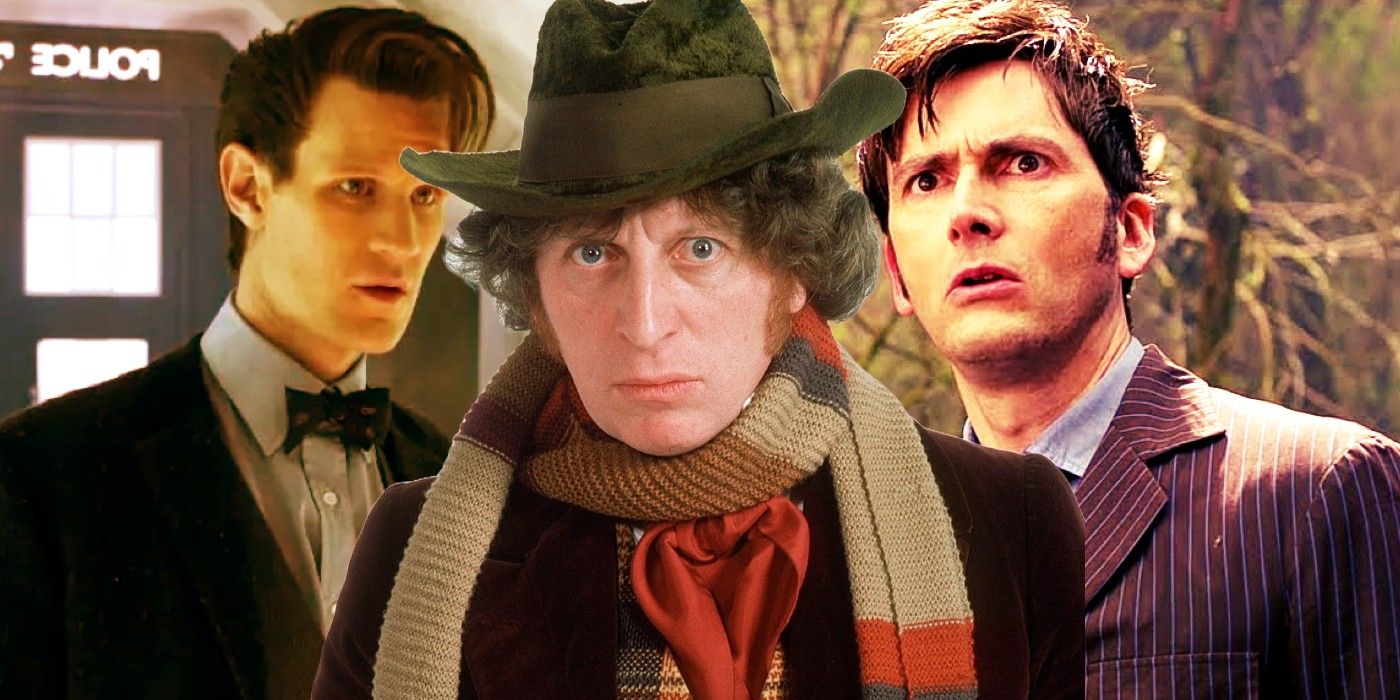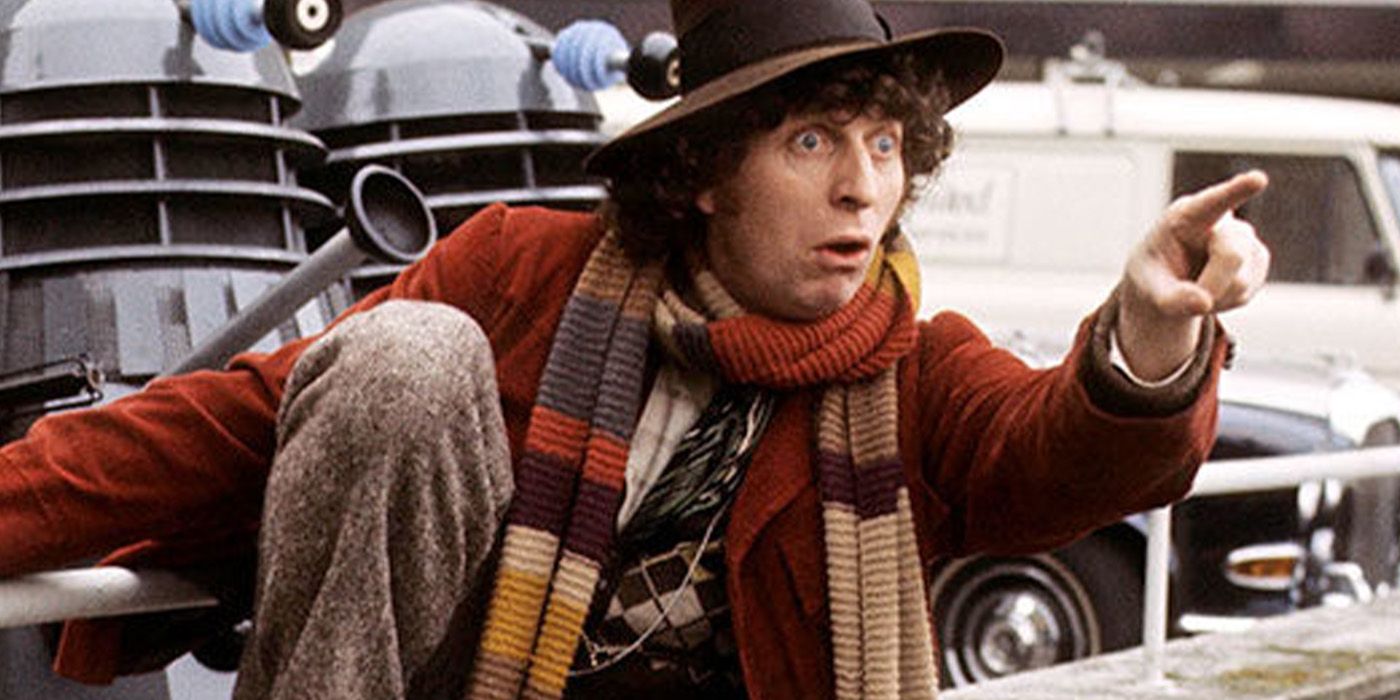
Doctor Who producers Russell T Davies and Steven Moffat come together to celebrate the “phenomenal“casting a particular Doctor. Looking back at the era of the Fourth Doctor, Tom Baker took on the role in 1974, leading the show for 172 episodes across 7 seasons. Baker’s final battle against the Master (Anthony Ainley) in” Logopolis” from 1981 brought his adventures to an end with the Fourth Doctor’s regeneration, but he has since reprized the role in one-off appearances and audio dramas.
When speaking with Doctor Who Magazine (through RadioTimes) in a larger retrospective on Phillip Hinchcliffe’s production management, Moffat turned his attention to the cast of that era, particularly praising Baker, Elizabeth Sladen and Ian Marter’s TARDIS team from the Fourth Doctor, Sarah Jane Smith and Harry Sullivan. He went so far as to say Doctor Who There is no better cast, explaining:
Steve Moffat: I know this was a legacy of the previous producer, but I’m not sure Doctor Who ever had a better cast than that first year with Tom Baker, Lis Sladen and Ian Marter. [as Harry Sullivan]I think one of Philip’s rare mistakes was getting rid of Harry. That dynamic – two companions who would talk about the Doctor – was very useful.
We never stopped that. There is an awareness about all of this, which means it simply doesn’t matter that the giant rat [in Talons] It’s a bit silly, why did you notice Li H’sen Chang? And it doesn’t matter that Li H’sen Chang is a bit silly, because have you noticed how idiotic his plan is? It just doesn’t matter, because the show is really enjoying riffing on these horror tropes, and you shouldn’t take things like giant rats, mummies, and Frankenstein’s monster seriously – unless there’s something really wrong with you.
Davies agreed, praising Baker’s Doctor Who launching as “the most phenomenal piece of casting on any show ever” and celebrating how Hinchcliffe and script editor Robert Holmes knew how to emphasize the actor perfectly throughout the era.
Russell T. Davies: That’s part of the joy. They know. You can see Philip Hinchcliffe and Robert Holmes leaning into their great success, realizing the leadership they have. In fact, Tom and Lis [also cast by Letts] they were great. They got the casting right twice. Throughout the history of Doctor Who, this is when miracles happen.
Also the miracle of a very strong script editor. Robert Holmes is present in every episode – that man must be rewriting a lot of things, and it works. But it works because it fits. Fits monsters like Morbius. It fits into the classics – the story of the mummy, the story of Frankenstein, the Old Testament! They’re great stories because they work. It’s all just brilliant. Genius meets genius. A great producer finds a great actor and great scripts.
What the Baker era meant for Doctor Who
The era redefined the tone and characters of the series
Hinchcliffe Doctor Who mandate saw a huge change from what came beforeas the series moved away from the James Bond-style adventures of Jon Pertwee’s Third Doctor and delved into a more terrifying universe. These stories not only featured the most egregious monstrosities that played with classic tropes, like the Egyptian-inspired Sutekh (Gabriel Woolf) and the patched-together body of Morbius (Michael Spice), but they also explored the still-lingering terror of fascism through the celebrated story of origin of the Daleks. However, it’s hard to imagine that these stories would have achieved as much impact without their distinct casts.
Furthermore, Sarah Jane and the companions who followed her would bring the role closer to what modern audiences would be familiar with.
A far cry from Pertwee’s Time Lord, action hero style, Baker’s performance created the eccentricities that would become the character’s defining characteristics to future incarnations, from her familiarity with historical figures to her unique fashion choices. Furthermore, Sarah Jane and the companions who followed her would bring the role closer to what modern audiences would be familiar with. She, Leela (Louise Jameson) and Romana (Mary Tamm and Lalla Ward) provided the show with a dynamic that challenged the Doctor and had their own abilities to compliment the Time Lord.
Our take on Davies and Moffat’s praise of the Baker era
The actor remains an iconic incarnation
Baker remains a fan-favorite doctor to this daywith his era in particular containing some of the most influential stories. As such, it’s not surprising that two of the writers who helmed the series’ revival are eager to celebrate the contributions of Hinchcliffe, Baker, and the rest of the cast. With his continued involvement in the franchise through Big Finish’s audio dramas, Baker is one of the most recognized actors to take on the role alongside modern incarnations. Davies and Moffat’s praise of the classical era of Doctor Who it’s well-deserved and a fitting tribute to the series’ past.
Source: Doctor Who Magazine (via RadioTimes)
